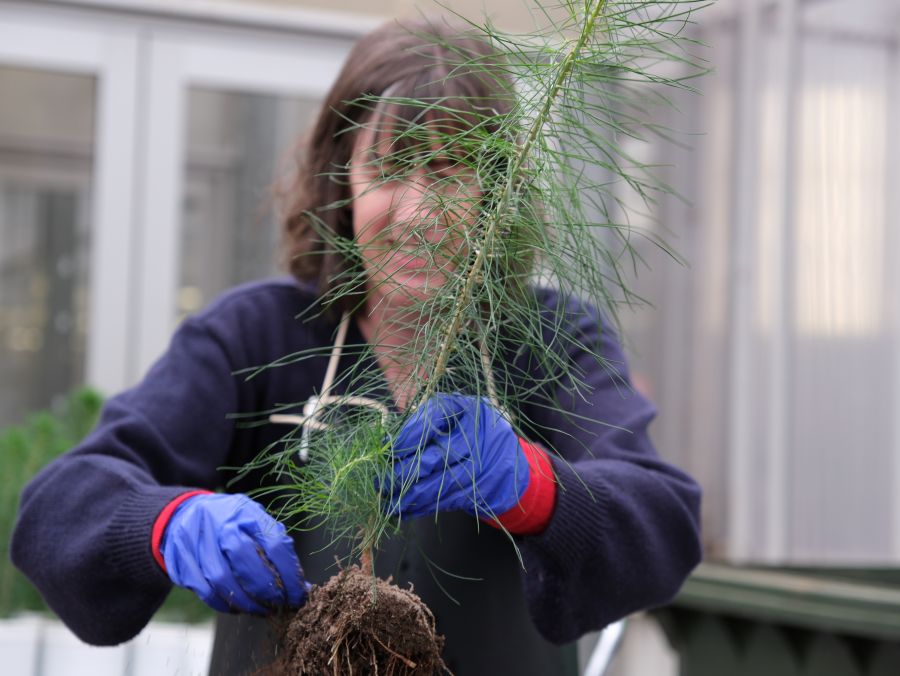Research highlight: tree microbiomes and aridity
Are the microbes that trees need to survive arid conditions of the future present in our soils today?
By investigating how microbial communities respond to increasing aridity, Scion's Sarah Addison conducted research unlocking new ways to protect both productive and natural forests, while strengthening climate resilience in forestry practices.
In a recently published study Sarah and other researchers analysed microbes sampled at sites in Australia that mimicsNew Zealand's future climate. Researchers analysed the forest microbiome environmental DNA (eDNA) of over 500 Pinus radiata trees.
They identified a small but significant group of microbes affected by aridity. However, the study raises concerns about whether these essential microbes will be available as conditions become more arid in New Zealand.

Why this research is important?
This research is crucial because increased aridity is a leading cause of forest decline worldwide. Aridity results from the combination of drought and increased water demand by plants, especially in hotter conditions. Forests planted today must be able to survive and thrive in more arid conditions in the future. One way plants adapt to changing environments is through their associations with microorganisms, which significantly influence tree health and fitness.
The MBIE-funded Tree Root Microbiome Programme, led by Dr, Steve A. Wakelin, has significantly advanced our understanding of these complex relationships. The study extends to global plantings of P. radiata, including endemic populations in USA and Mexico, to provide a broader understanding of the microbiome's role in tree survival.
Read the full paper, Unravelling Changes in the Pinus radiata Root and Soil Microbiomes as a Function of Aridity, published in Global Change Biology.
